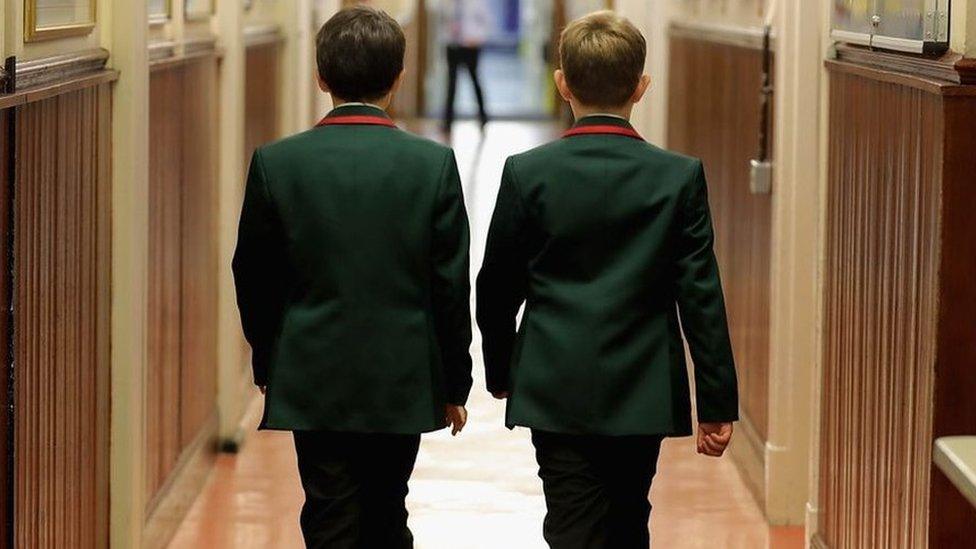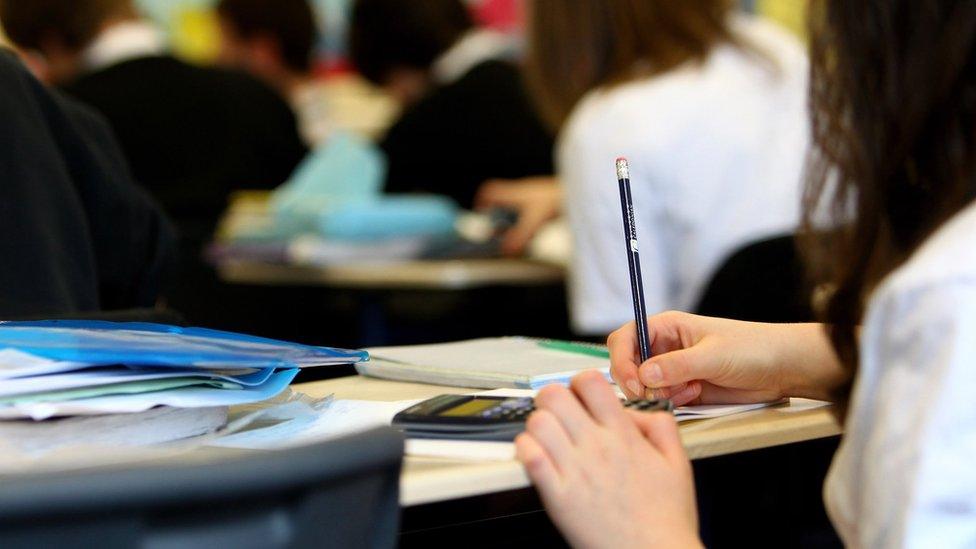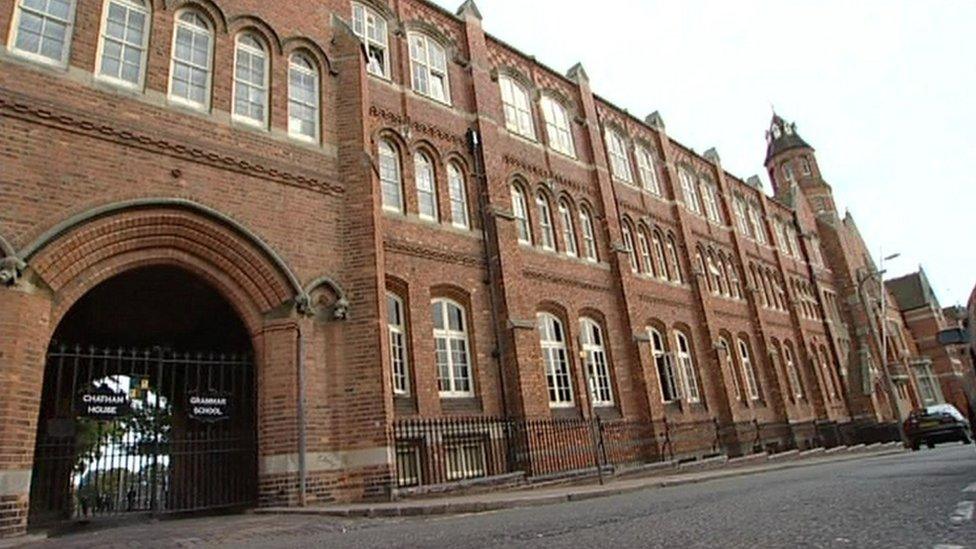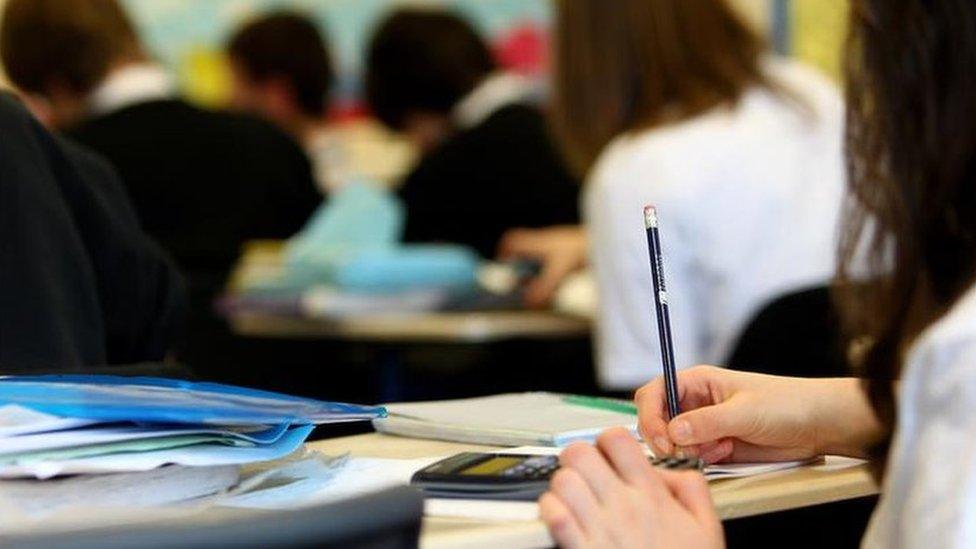Children of 'just managing families left out by grammars'
- Published

Grammar school places are dominated by wealthier pupils, says Sutton Trust
Lack of access to grammar schools is not confined to the poorest children, those from "just managing" families are also left out, research suggests.
"There is a strong indication that families on below average earnings are not being helped by the current grammar school system," said the Sutton Trust.
Grammar schools in England should not expand until the government can ensure fair admissions, the charity argues.
Ministers said their plans would address these issues.
The government's consultation on proposals to lift the ban on opening new grammar schools ends on Monday.
Prime Minister Theresa May has insisted that the plan will not represent a return to "the system of binary education from the 1950s" with a grammar in every town.
Unequal access
The Sutton Trust looked at entry to selective schools in 2015, according to neighbourhood deprivation.
In selective education areas outside London, the researchers found a third (34%) of Year 7 pupils were from the richest neighbourhoods while only 4% came from the poorest and 11% were from neighbourhoods with below average incomes.
The report says that in these poorer areas, children from non-disadvantaged groups - those not-receiving free school meals - are likely to be from the "just about managing" families, which the prime minister has said she wants to prioritise.
But the researchers found these children "were substantially less likely to attend grammar schools" than children from better off areas.
"A lack of access to grammar schools isn't merely restricted to those at the very bottom of the scale," say the researchers.
"There is a steep social gradient across the wealth distribution."
In October, BBC research found that less than half of England's 163 grammar schools prioritised poor pupils in allocating places.

The Sutton Trust report also finds that ethnic background plays a significant role in grammar school entry - with disadvantaged Indian pupils four times more likely than disadvantaged white British pupils to attend a grammar school.
Disadvantaged black pupils are also significantly under-represented, according to the analysis.
"Today's research raises concerns about the government's plans to use new grammars as a vehicle for social mobility," said Sutton Trust Chairman Sir Peter Lampl.
"We need to get existing grammars moving in the right direction before we consider expanding their number."
The report urges the government to focus on improving fair access to existing grammars before any expansion in their numbers.
It recommends:
extensive outreach to encourage poorer children to apply
priority places for poorer children who meet entrance criteria
at least 10 hours subsidised tuition to prepare poorer pupils for entrance tests
Shadow education secretary Angela Rayner said the evidence from the report was clear and "grammar schools reinforce advantage and offer nothing to most kids".
"School budgets are seeing cuts for the first time in decades, class sizes are soaring and teachers are leaving the profession in droves," she said.
"It is time the Tories stopped putting politics before pupils, and started standing up for all our children, not just a lucky few."

Poorer pupils need subsidised tuition to prepare for entrance tests, says the report
A Department for Education spokesman said previous Sutton Trust research , externalhad "highlighted the positive impact grammar schools can have on pupils from less well-off backgrounds".
"Our proposals will address the issues highlighted in the report, creating more good school places in more communities and ensuring new and existing selective schools prioritise the admission of lower income pupils and support other schools to help drive up academic standards across the system."
- Published21 November 2016

- Published18 October 2016

- Published8 September 2016
- Published8 September 2016
- Published9 September 2016

- Published8 September 2016
